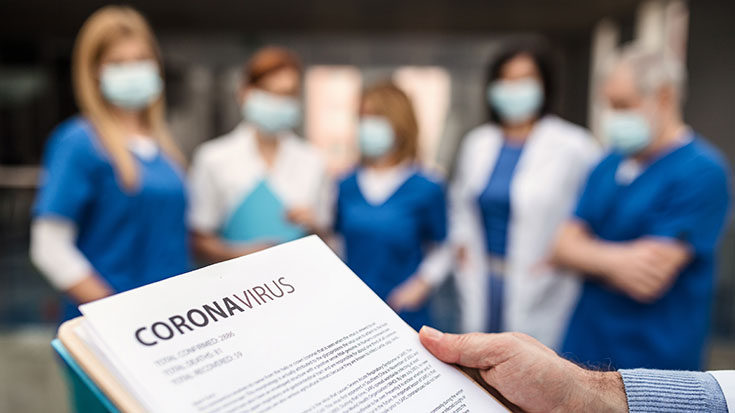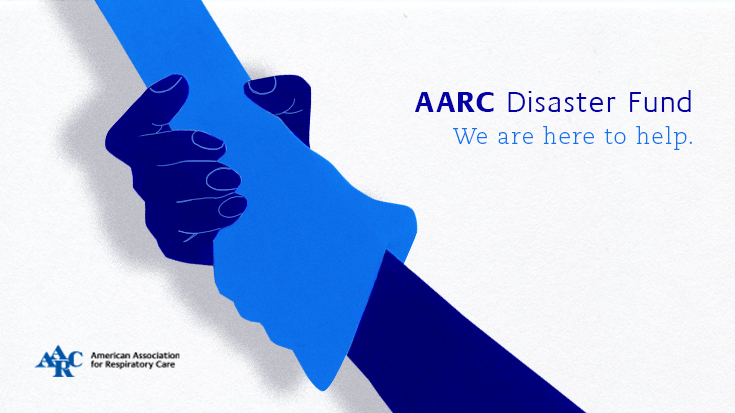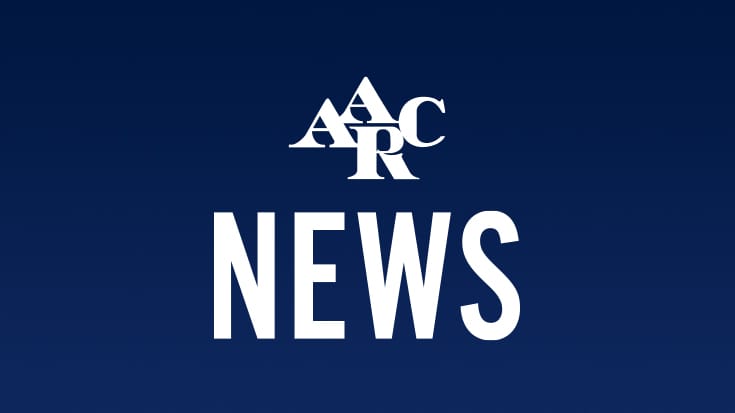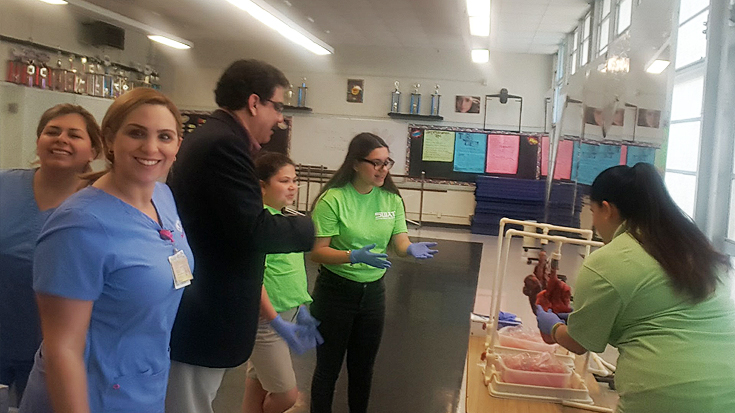
Respiratory therapists are known for their caring hearts, and, for many, that spirit of giving extends beyond the walls of their hospitals and other facilities. They take their lung health expertise out into the community as well. We asked AARC members to share how RTs volunteer their time to their community, and we’ve learned that many reach out through health fairs, awareness events, support groups, and more. Read their stories below.
Educating Our Youngest Patients
Many therapists give their time to summer camps for kids with asthma, and Julie Feldstein, MSRC, RRT, RPFT of Ohio, is one of them. The camp is held by her hospital and she loves working with the children to help them better understand how to use their inhaled medication devices. This year she was charged with organizing the educational session at the camp and worked hard to make it fun and different from previous years.
“I put together a giant memory board with medication, asthma action plans, triggers, and symptoms,” Feldstein said.
The session included games, such as “Asthma Twister” and “My Asthma Caregiver Says” (modeled after “Simon Says”).
“It’s always fun to teach and have a good time at the same time,” Feldstein said.
For others, educating children about the opportunities available in respiratory care takes center stage. Jack Fried, MA, RRT of Utah, recently took part in his hospital’s summer career camp and enjoyed showing the children who RTs are and what they do. He even led a demonstration of the respiration process using pig lungs, one exposed to tobacco smoke and a normal one.
Giving Back to the Community
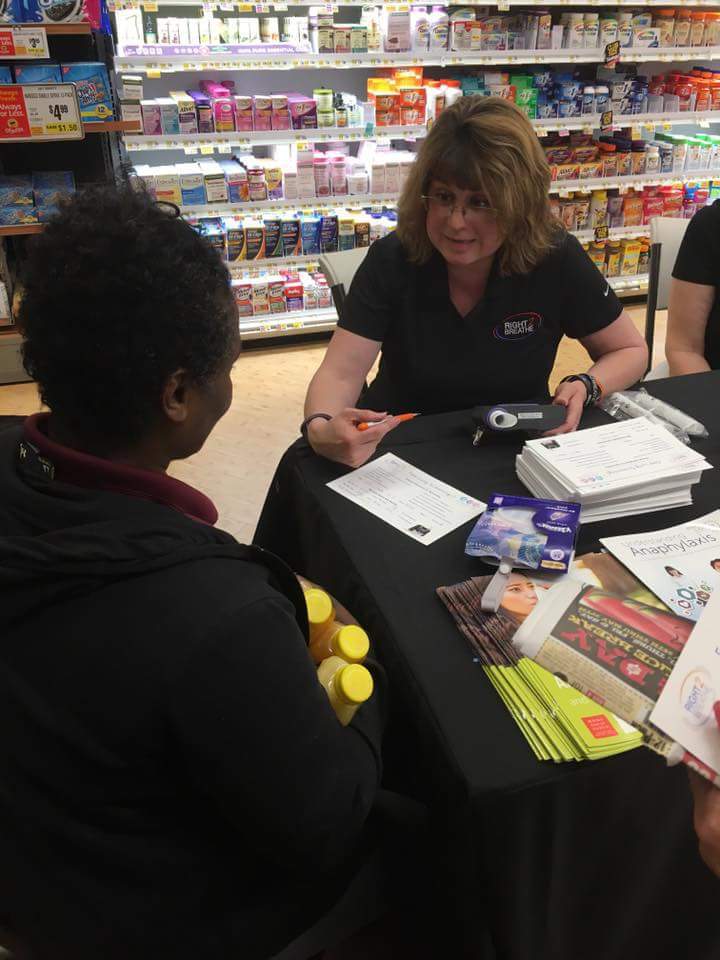
As director of education for a group called Right2Breathe, Michelle DaSilva, BA, RRT-NPS of New Jersey, helps to organize screenings, education, advocacy, and resources for people with asthma, COPD, and pulmonary fibrosis. She is also a member of her local American Lung Association (ALA) chapter’s Lung Expo Committee and COPD Coalition, bringing her expertise to support the activities sponsored by these groups.
“I have been an asthmatic since childhood,” DaSilva said. “It is rewarding to me to help others with lung disease with my knowledge and experiences. I am able to relate to them regarding the patient side and I want to help them as much as possible with understanding their lung disease and the resources available to help them.”
Maryland RT Leona Woodrupp, RRT-NPS, shares her lung health knowledge via an annual health fair sponsored by her church. In addition to performing peak flows and providing a wealth of information on asthma triggers, sleep apnea, radon testing, and other topics, she enjoys visiting with members of her community and answering their questions.
“It is very gratifying to see persons outside of acute care to provide information to help control, prevent, and treat some of the respiratory maladies,” she says. “It is nice to give back to the community.”
Reaching Out Online
Michael Hess, BS, RRT of Michigan, embraced social media to reach out to COPD patients.
“I administrate a COPD support and education group on Facebook,” Hess said. “It’s a place where people can come and get relatively unbiased, objective answers to questions they might have, and, more importantly, get the information they need to ask their clinicians, the specific questions that will help optimize their care.”
His online group has been active for three years now and a live element just celebrated its six month anniversary. Hess believes engaging patients via Facebook gives them the chance to learn new information and make new friends that become a vital part of their social network.
“It’s been very rewarding to see people, who were relatively isolated due to their intolerance for activity, make new connections and true friendships, finally able to realize that they aren’t alone in the struggle against lung disease,” Hess said. “Learning from people walking the path is invaluable; their insight and advice make us better clinicians.”
The Next Generation
RT educators Ellen Becker, PhD, RRT-NPS, FAARC of Illinois, and Randy De Kler, MS, RRT of Florida, are helping the next generation of RTs understand the importance of volunteering for lung health.
“I do a service learning project with my students each year that involves presenting a smoking prevention piece to middle school-aged children,” De Kler said. “We reach several hundred students per year with it.”
Dr. Becker gets her students involved in a range of inter-professional teams through her school’s Office of Community Engagement. Venues include community health fairs, after school programs, a residential facility for formerly homeless women, lung advocacy events, and local schools. RT students tackle topics like asthma self-management, COPD self-management, and tobacco cessation, and they’ve seen some great results.
“For our venues where there is long-term engagement, we are learning that there have been decreased rates of smoking and fewer ED visits,” Dr. Becker said.
Lung Force and More
For Robert Boyd, MBA, RRT of Kentucky, getting involved means lacing up his sneakers and taking part in the Lung Force Walk held every year by the ALA.
“My participation in these events always leaves me with a feeling of accomplishment and pride in what we can achieve as a team working toward a common goal,” Boyd said.
Fellow Kentucky therapist Jim Matchuny, RRT-NPS, RPFT, RPSGT, is actively involved in Lung Force as well, helping organize educational programs for the initiative and getting his students involved in serving as escorts for patients who attend the meetings. They enjoy assisting them with their navigation and oxygen needs, and it makes him happy too.
“I love the feeling that I get by volunteering and giving back,” Matchuny said.
As a member of the ALA’s Regional Leadership Council for the Midland States, Michigan RT Teena Culhane, BHK, RRT, helps organize the Lung Force Walk held annually at the Detroit Zoo. She recently took part in the ALA’s Fight for Air Climb as well, where she climbed 70 flights of stairs in a downtown Detroit building.
She goes all out for National Pulmonary Rehabilitation Week too, helping her hospital prepare interactive workshops and other events. And when the annual COPD celebrations come around in November, she is front and center for them as well.
This year her hospital will partner with the ALA to hold its first ever “Lung Force Learning” event.
“I love educating and teaching patients how they can live with these illnesses and improve their quality of life, as there is such a lack of awareness in the community,” Culhane said.
How do you use your RT skills to give back to the community? Keep this conversation going by sharing your story on Twitter and tagging @aarc_tweets. We want to hear from you!
Email newsroom@aarc.org with questions or comments, we’d love to hear from you.







